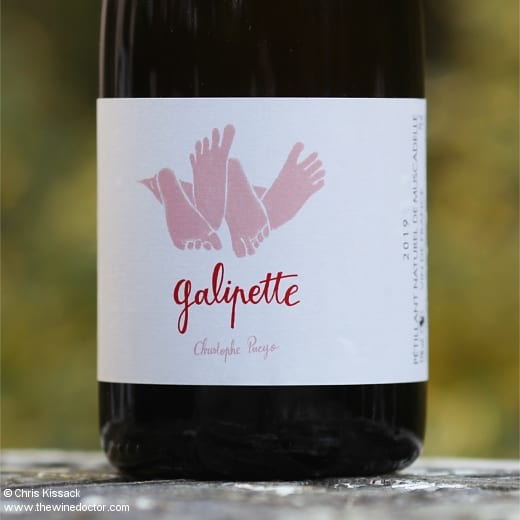Christophe Pueyo Galipette 2019
One New Year resolution I made many years ago, and which I have faithfully adhered to ever since, is to give up making New Year resolutions. Indeed, I think it was the only time I ever had any real success with these annual commitments to self-inflicted failure. If I were to make such a resolution for 2021, though, it would surely be to get off the beaten track in Bordeaux, and to seek out some of the region’s less well-known domaines and more esoteric styles. This weekend’s wine, from Christophe Pueyo, is a good example of why such a resolution might be worthwhile.
Vignobles Pueyo is located in the Libourne peripheries, land which is neither entirely urban nor rural, being a mix of suburban sprawl and vineyards, the two intertwined in a battle fuelled by the ever-increasing value of the land. From their base here Jean-Paul and Christophe Pueyo farm about 8.5 hectares of vines in a multitude of small parcels scattered about the Saint Emilion appellation (while Libourne is inextricably linked to Pomerol, many of the eastern suburban vineyards have the Saint Emilion appellation, Château Quinault L’Enclos being the prime example). The incumbents, the third and fourth generations of the Pueyo family to run this small domaine, converted it to organic farming in 2010, with full certification coming in 2013. They largely work with Merlot, as you might expect, although Christophe has long harboured an interest in working with other varieties, which is where this wine, Galipette, Christophe’s personal project, comes in.

Galipette is produced from 1.5 hectares of Muscadelle, the vines located in Nérigean, on the left bank of the Dordogne, opposite the Libourne sprawl. The vines which are rented, farmed by Christophe on an en fermage basis, are rooted into soils of light clay over deeper Calcaire à Astéries, one of the most desirable limestone terroirs of the right bank. As with the other Pueyo vineyards the vines are managed using organic methods (the site currently in conversion, the process having begun in 2019), and the fruit is picked by hand. After pneumatic pressing the fermentation of the juice kicks off in stainless steel, but it than goes into bottle without filtration or the addition of sugar or yeast to produce a classic pétillant naturel style. It also sees no sulphite additions at any stage.
There’s very little in the way of intervention here, so it is perhaps unsurprising that the 2019 Galipette carries a lot of sediment. I left my bottle standing in the fridge for a couple of weeks before opening, so all but the final two glasses poured clear, before the wine turned opaque with cloudy sediment. Any agitation before opening and you could end up with something resembling bière blanche rather than sparkling Muscadelle. In the glass (the first, not the last) the wine has a pale golden hue, and presents a very fine and gentle bead. The aromatic profile is a delight, with a very floral confidence, elderflower and honeysuckle dominating, backed up by acacia and citrus zest, in a very lifted and fresh style. This continues on the elegantly composed palate which starts off floral, before in the middle it moves into citrus pith, before shifting in the finish to acacia and vanilla, still with an intriguing citrus bitterness which gives contrast to the floral delicacy of the fruit. Throughout it remains very dry and focused, with fresh acidity and a fine mousse. It is a joyful and very distinctive style, one which throws down the gauntlet in a region where sparkling wines are rarely anything to get excited about. 93/100
I will certainly look out for more like this from Christophe and Vignobles Pueyo in the future, and hopefully I can check out some of their red wines too. And no, that doesn’t qualify as a resolution. (4/1/21)
Read more in:
- My guide to the Bordeaux wine region
- My primeur reports on the Bordeaux 2019 vintage
